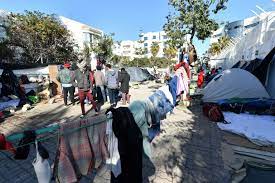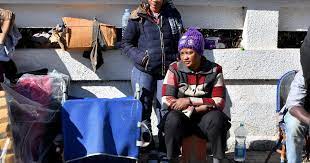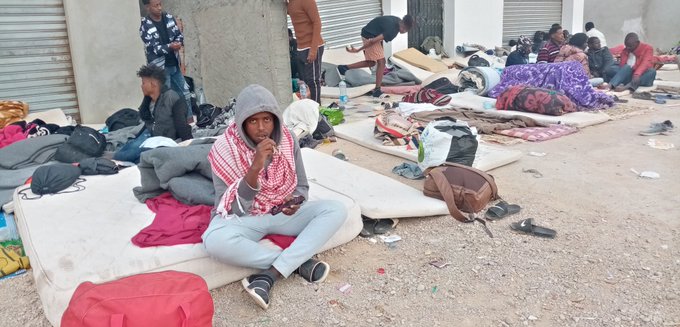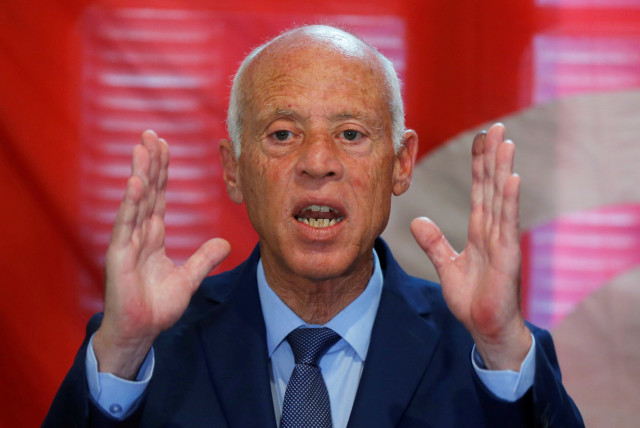Natasha has nothing to return to in her native Sierra Leone, and nowhere to go but a grim camp in Tunisia’s capital since President Kais Saied announced a crackdown on migrants.
“Please help us,” she said, tears in her eyes, standing outside an International Organization for Migration (IOM) office in a Tunis business district.
Natasha, 27, is one of hundreds of migrants who have set up the makeshift encampment since Saied last week ordered “urgent measures” against them, sparking mass evictions by landlords fearing heavy fines and even prison.
Saied accused African migrants of causing a wave of crime and violence, making unsubstantiated claims that they represented a “plot” to change Tunisia’s demographic make-up.
“After the president’s speech, Tunisian citizens went to our homes, destroyed everything we had, took our things and beat us, me and my friends,” Natasha said.

She now sleeps on the pavement in the winter cold, with no washing facilities.
“This is not a place for a human to live,” she said.
As night fell, Tunisian and foreign volunteers brought donations of food, water and blankets, along with some tents, while young doctors gave free medical care.
“We prefer to keep it low-key,” said Seif Ghrairi, an activist from the country’s Anti-Fascist Front, hastily formed in the days after Saied’s speech.
“Even associations collecting donations (for migrants) are receiving threats,” Ghrairi added.
Help was being distributed at night to avoid exposing either migrants or volunteers to danger, he said.
TheNewsGuru.com (TNG) reports that Natasha and others from Guinea, Cameroon, Chad and Sudan were already living precarious lives with the little money they earned from informal work.
Just hours after Saied’s February 23 speech, thousands of undocumented migrants were made homeless.
Moumin Sow, 29, had been working informally for two years as a bartender in the seaside industrial city of Sfax.
“A mob of Tunisians came into our house and took everything,” he said.
“Look at me: all I have is the clothes that I’m wearing and my phone. I had to run for my life.”

Sow said he wanted to go home to Mali.
“I can’t stay here with everything I’ve seen,” he said.
Ghrairi urged authorities to “respect human dignity” and refrain from forcibly repatriating migrants who are unable or unwilling to leave.
“Just as we demand respect for the rights of Tunisians who go to Europe clandestinely, we demand respect for sub-Saharan Africans in Tunisia,” he said.
IOM officials have been scrambling to count migrants and set individual appointments to discuss their circumstances.
One official, who asked not to be named, told AFP over the phone that the organisation was “overwhelmed”.
“We can’t find accommodation for them all,” the official said, adding that some of the migrants wanted to go home via the agency’s voluntary return programmes.
Around 100 Ivorians and Malians have been temporarily housed by their embassies and are expected to be repatriated in the coming days.
A Malian diplomat said a flight for Bamako was expected to leave on Saturday.
But Natasha said she wanted to go to Europe, and ruled out going back to Sierra Leone, where she has no relatives who can help her.
“I’m not going back to my country, I have no family,” she said.
“The money I came with, I borrowed it, so I don’t have anything any more to pay.”

